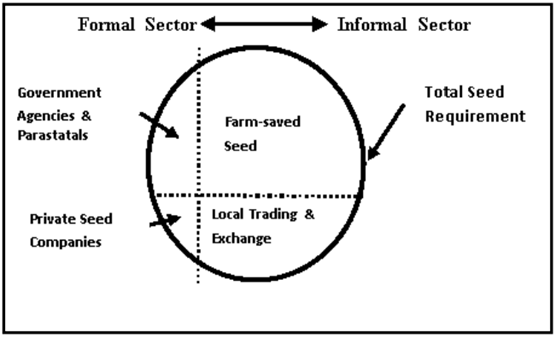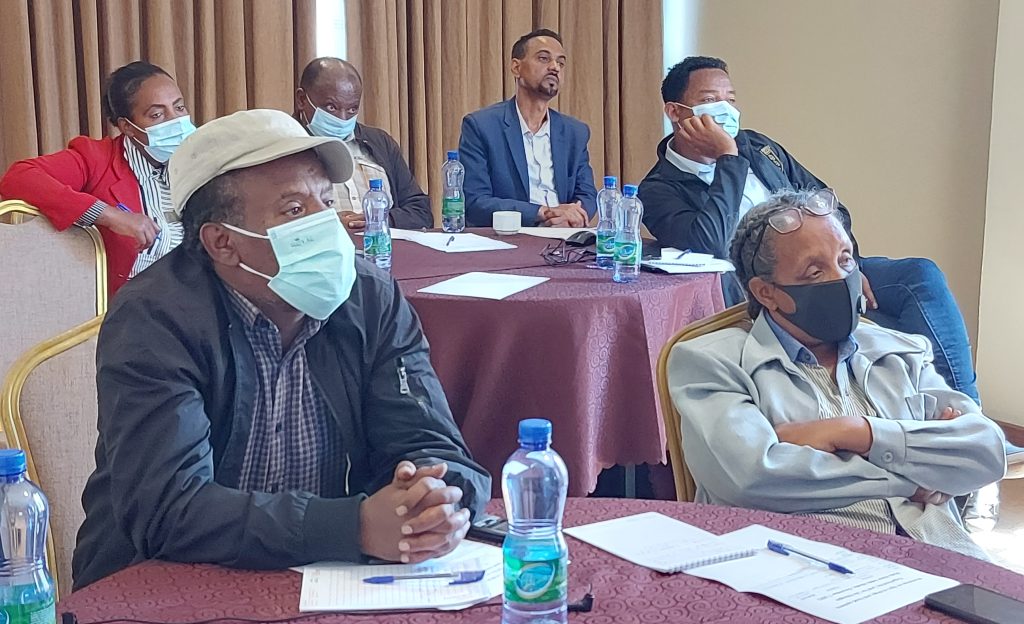Land for Life Ethiopia organized a half-day workshop on agroecology and the food system for the Land for Life members and other participants that came from Oromia and the Federal government bureau. The workshop was held on December 07.2021 at MADO HOTEL where two papers are presented: Community Seed Banking as a Strategy to Transit to Agroecology and Sustainable Food Systems by Bayush Tsegaye (Ph.D.) and Ethiopian Policies, Laws, Strategies and Plans Around Agroecology by Mellese Damtie (Ph.D.)
Participants gained awareness on: – community seed bank (CSB), community seed bank as a strategy to ensure food, the role of CSBs as an agroecological practice to promote sustainable food systems, the relevance of laws and policies for agroecology, and legal and policy instruments for the adoption of agroecology.
Ethiopia is the pioneer in experimenting and promoting community seed banking initiative in the late 1980s. Community seed banking was conceived by the renowned geneticist, Dr. Melaku Worede, by then Director of PGRC/E as a response to the need to meet community needs after the crisis.

A community seed bank is a community-based facility owned and managed by farmers elected from among its members. Its primary purpose is to supply locally adapted seeds to its members, and thereby increasing on-farm diversity, building the seed security status of the members, and also strengthening their capacity for resilience to seasonal climatic variability.
Community seed banks handle seeds at two levels: – Seed stock for annual use (large volume of seed stored for distribution during the next planting season) and Germplasm reserve (seeds stored for the medium term and serve as a back reserve to fill gaps in case of adversity).
There are different false narratives about farmer varieties: – farmer varieties are traditional and need to be abandoned, farmer varieties are low-yielding need to be replaced, growing farmer varieties makes farmers poor, farmer varieties are not good for food security, etc.
Role of CSBs as agroecological practice in promoting sustainable food system:
- CSBs supply a range of locally adapted crop types and varieties.
- CSB supplies major food crops, rotation crops, and sequential crops that can be planted at different periods to make good use of the cropping season.
- By offering a wide range of choices of planting materials (crop types and varieties), community seed banks promote build resilience capacity of farmers.
- Seeds are easily accessible and affordable to the community, especially resource-poor ones. Hence, it is inclusive accommodating the most vulnerable social groups.
- The production practices are within the reach of farmers (do not create dependency on external input supply).
- Farmers’ management practices favor soil fertility enrichment in an organic way (using rotation, composting, or using animal manure).
Laws and policies that deal with food production and consumption need to understand the ecological processes which play significant roles in food production.
There are a number of legal, policy, and strategic instruments both at international and national levels which favor the adoption of agroecology. The international instruments that deal with agroecology include – Convention on Biological Diversity (CBD), The United Nations Framework Convention on Climate Change (UNFCCC), Convention to Combat Desertification (CCD), etc. National legal, policy, and strategic instruments which support agroecology in Ethiopia include: – The FDRE Constitution Article 41 and 43, Organic Agriculture System Proclamation 488/2006 No., Seed Proclamation No. 782/2013, Plant Breeders’ Right Proclamation No. 1068/2017, etc.
CSBs play a pivotal role in the realization sustainable food system movement. The existing agricultural practices in Ethiopia are easy to modify so that they can be converted to agroecology.
Agroecology can be taken as a viable option to solve most of our food-related problems


